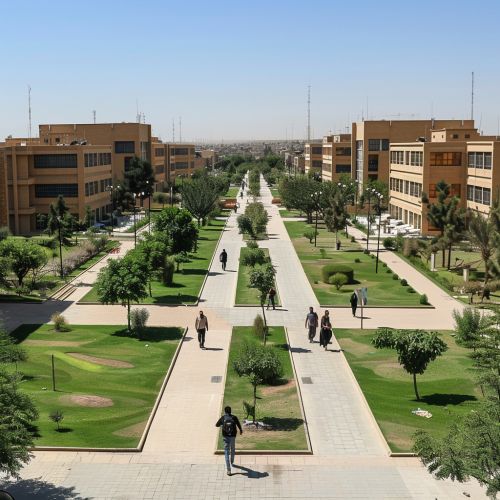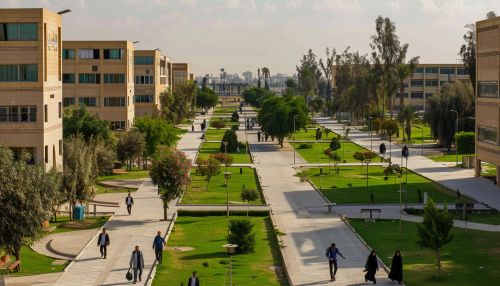Mosul University
History
Mosul University, officially known as the University of Mosul, is one of the largest educational institutions in Iraq. Established in 1967, it has grown to become a pivotal center for higher education in the region. The university's foundation was part of a broader initiative to expand higher education in Iraq during the 1960s, a period marked by significant educational reforms and infrastructural development. The university's establishment aimed to cater to the educational needs of the northern regions of Iraq, particularly the Nineveh Governorate.
Campus and Facilities
The university's main campus is located in the city of Mosul, which is the capital of the Nineveh Governorate. The campus spans a substantial area and includes a variety of facilities designed to support both academic and extracurricular activities. The university boasts numerous lecture halls, laboratories, libraries, and administrative buildings.


The central library of Mosul University is one of the largest in Iraq, housing an extensive collection of books, journals, and electronic resources. The library serves as a crucial resource for students and faculty members, providing access to a wide range of academic materials.
Academic Structure
Mosul University is organized into several colleges and departments, each specializing in different fields of study. The university offers undergraduate, graduate, and doctoral programs across various disciplines. Some of the prominent colleges include:
- College of Medicine
- College of Engineering
- College of Science
- College of Arts
- College of Education
- College of Agriculture and Forestry
Each college is further divided into departments that focus on specific areas of study. For instance, the College of Engineering includes departments such as Civil Engineering, Mechanical Engineering, and Electrical Engineering.
Research and Development
Research is a fundamental component of Mosul University's mission. The university has established numerous research centers and institutes dedicated to advancing knowledge in various fields. These centers focus on areas such as medical research, agricultural innovation, and engineering advancements. The university encourages both faculty and students to engage in research activities, often collaborating with international institutions to enhance the scope and impact of their work.
Challenges and Resilience
Mosul University has faced significant challenges over the years, particularly during periods of conflict in the region. The Iraq War and subsequent instability had a profound impact on the university's operations. Despite these challenges, the university has demonstrated remarkable resilience. Efforts to rebuild and restore the campus have been ongoing, with support from both the Iraqi government and international organizations.
Student Life
The university provides a vibrant student life, with numerous student organizations, clubs, and societies. These organizations offer students opportunities to engage in extracurricular activities, develop leadership skills, and participate in community service. The university also hosts various cultural and sporting events, fostering a sense of community and camaraderie among students.
International Collaboration
Mosul University has established partnerships with several international universities and research institutions. These collaborations facilitate academic exchange programs, joint research projects, and faculty development initiatives. The university's commitment to internationalization aims to enhance the quality of education and research, providing students and faculty with global perspectives and opportunities.
